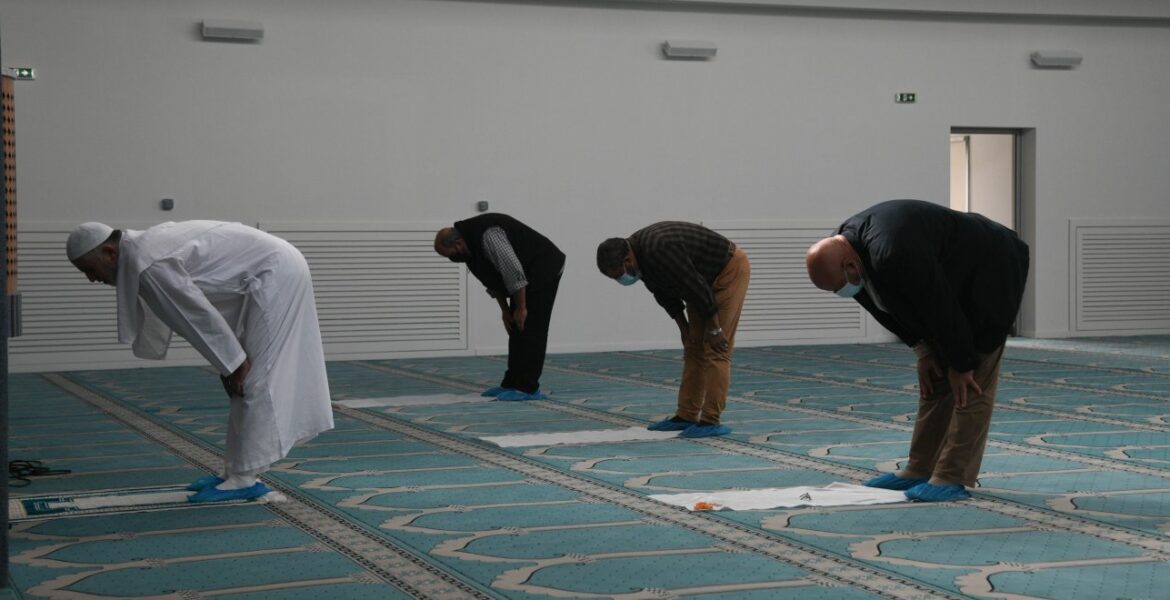The lack of an official mosque in Athens until just says ago resulted in the creation of about 100 informal mosques where thousands of Muslims pray daily.
This changed from Monday when the first public mosque opened its doors at 144 Iera Odos in Votanikos.
The question that arises from now on is whether the operation of the mosque at Votanikos will lead to the closure of about 100 informal Islamic places of worship, of which only 10 are licensed by the state. The remaining 90 are therefore operating illegally.

Ethnos asked the question to Angelos Syrigos, Associate Professor of International Law and Foreign Policy at Panteion University and Member of Parliament for New Democracy, and to the President of the Muslim Union of Greece, Naim Elgantour.
Angelos Syrigos said that “unlicensed places of worship are not informal but illegal and must be closed. There are about 10 places of worship that have been legalized. The rest obviously do not meet the criteria and must be closed. Some have been closed since the summer.
“These may, for example, be inappropriate places that are considered dangerous for gathering people who want to pray – not to meet fire safety rules, not to have an emergency exit and so on,” the MP said.

We need to make a difference. Votanikos is a mosque. The mosque is one thing and the places of prayer are another. The mosque has an imam, a council, etc,” he continued.
Asked if the Votanikos mosque can meet the needs of all Muslims living in all parts of Attica, Syrigos answered: “Greece is not a Muslim country. Experience has shown that only on major Muslim holidays is there a need for large venues. Therefore, we can say that the mosque at Votanikos can meet the needs of Muslims who want to pray.”
Regarding security issues, the well-known professor of International Law and Foreign Policy notes that “it is 100% certain that there is a risk to state security. The example from other countries shows us that radicalization begins in the mosques. Prayer rooms need special attention.”
The positions of the president of the Muslim Union of Greece, Naim Elgantour, are moving in a different direction, pointing out that it is impossible for the Votanikos mosque to cover the religious needs of the Muslims living in Attica.
What he proposes is to close the Muslim prayer places in Votanikos, where the official mosque now operates, but not to stop the prayer places in the other areas.
“We had said from the beginning that the areas around the Votanikos mosque should be closed. We fought for years to have an official mosque in Athens. It is impossible not to be crowded, because Muslims pray in informal places. Now of course is not the right time to close, due to the pandemic,” he said.
“Only nine people are allowed in the Votanikos mosque during the five daily prayers. After the pandemic, however, places of worship in the area must be closed. Regardless of the pandemic, however, the space at Votanikos, which can accommodate 350 people, is not enough,” he continued.
“Consider that before the pandemic, the 400-square-foot prayer space in Neos Kosmos could hold 600 people. There is also a space in Moschato, three floors and 1,800 sq.m., that could fit even more people. Before the pandemic, these places were full,” Elgantour explained.

“There is also the issue of Friday, which is for us the main day of prayer. On Fridays a Muslim can go for prayer two or more times. How will this be done when he stays away from Votanikos? How will the places of worship in Lavrio, in Salamina, in Aspropyrgos be closed?”, the Islamic leader said.
Asked about the reports, according to which there are extremists in the illegal mosques, Elgantour answered: “Those who spread fear in the Greek people by saying such things, why do they not ask the police to answer this question?”
“There is no such issue in Greece. Greece is a safe country, especially dear to Muslims. There are competent services for these things, with which our cooperation is flawless,” he concluded.
Alexandros Kalafatis is a correspondent for Ethnos.

